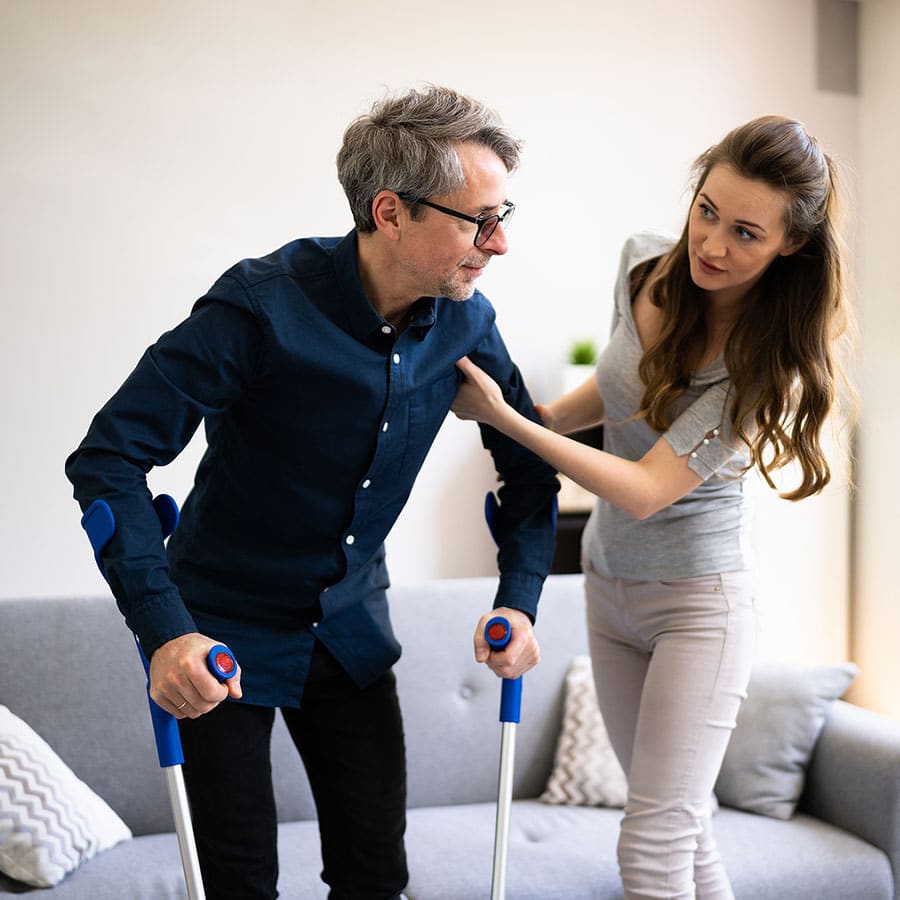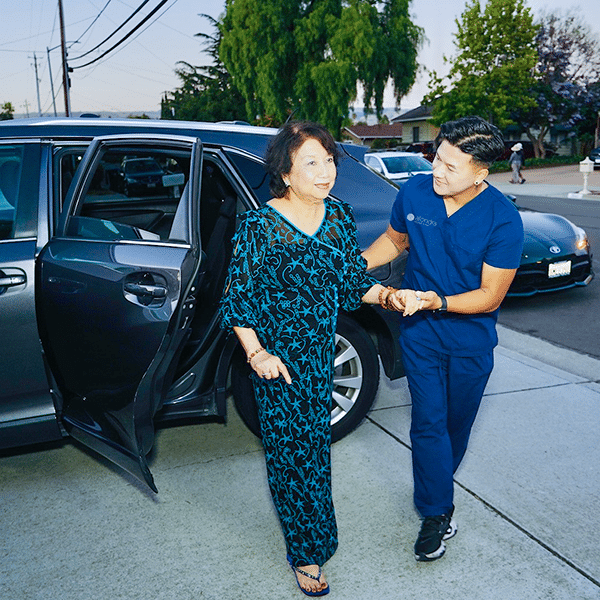Parkinson’s and ALS Home Care
Alondra Home Care is the premier non-medical in-home care agency serving seniors in Fremont, Oakland, and San Jose. We have been devoted to providing care for families for over 6 years. Our mission is simple… Love Others More. We do so by going out to homes, communities, and centers helping the elderly live their most satisfying lives for as long as possible.
If you’re looking for home care in Fremont, CA then you won’t find a more caring organization. The in-home care services provided by our exceptionally trained professional caregivers make it possible for the elderly to remain independent in the place that they call home. Contact us now so we can make a difference in you or a loved one’s life today.
What is Parkinson’s Disease?
Parkinson’s disease is a chronic, progressive neurological disorder with no known cure. Symptoms may include tremors, change in the pace of movement, stiffness, and loss of balance. Medical science has come up with treatments that may control symptoms, but the patient you’re caring for may need your help keeping up with them.
As a caregiver, you are witness to what your loved one is going through, which puts you in a position to make a tremendous contribution to their Parkinson’s disease treatment.
What is ALS?
ALS, or amyotrophic lateral sclerosis, is a progressive neurodegenerative disease that affects nerve cells in the brain and spinal cord.
”Amyotrophic” comes from the Greek language. “A” means no. “Myo” refers to muscle. “Trophic” means nourishment. So, amyotrophic means “no muscle nourishment,” and when a muscle has no nourishment, it “atrophies” or wastes away.
“Lateral” identifies the areas in a person’s spinal cord where portions of the nerve cells that signal and control the muscles are located.
As this area degenerates, it leads to scarring or hardening (“sclerosis”) in the region.
Motor neurons reach from the brain to the spinal cord and from the spinal cord to the muscles throughout the body. The progressive degeneration of the motor neurons in ALS eventually leads to their demise.
When the motor neurons die, the ability of the brain to initiate and control muscle movement is lost. When voluntary muscle action is progressively affected, people may lose the ability to speak, eat, move and breathe.
The motor nerves affected when you have ALS are the motor neurons that provide voluntary movements and muscle control. Examples of voluntary movements are making the effort to reach for a smartphone or step off a curb. These actions are controlled by the muscles in the arms and legs.
What Does Parkinson’s Disease and ALS Home Care Include?
People with Parkinson’s disease or ALS rely on caregivers for a wide range of support. As the disease progresses, dependence on a caregiver increases substantially. Caregivers can help people with Parkinson’s or ALS adjust to the disease’s effects on the body, and knowing that a loved one is cared for can help the entire family adjust to the diagnosis.
For this reason, hiring a professional caregiver is the right solution for many families, but most importantly, entrusting the care of your loved one to someone else is not always an easy task.
We’ve satisfied many customers over the years. A few were kind enough to send us a note. So don’t just take our word for it view our testimonials.
Exceptional Parkinson’s and ALS Home Care in Fremont, Newark, Union City, Hayward, Oakland, Milpitas, San Jose, San Leandro, Richmond, and the San Francisco Bay Area

Other components of our Parkinson’s or ALS care plan may include, but are not limited to:
- Scheduling and transportation for medical appointments
- Communicating with the senior’s physical, occupational, and speech therapists
- Preparing nutritious meals in accordance with abilities and feeding
- Offering companionship and emotional support to reduce instances of depression
- Companion Care at Home for Parkinson’s Disease
When looking for home care in Fremont, CA you won’t find a more caring organization. View our services and see how we can change your life today.
What Is Companion Care?

Companion care services offer essential help for those who can’t get around on their own without aid or struggling after long periods sitting down because it provides them companionship when needed – this helps give family caregivers peace-of-mind knowing someone will be checking up on them throughout the day.
Caregivers help to make daily living easier and safer for the care recipients. Some of these ways are performing errands, like grocery shopping or picking up medications, on their behalf; other times they will plan and prepare regular meals as well as light housekeeping duties.
Caregivers are there to improve quality of life in other ways. They act as partners for favorite hobbies and activities, accompany clients on appointments and social outings, and engage in friendly conversations with their loved ones.
The isolation of aging is not just a feeling, it’s an illness. Companion caregiving provides isolated seniors with social interaction and regular companionship, ending the cycle of senior isolation which can lead to health complications.
Benefits of In-Home Companion Care for Parkinson’s Disease and ALS
Supporting Seniors Emotionally
Seniors are more comfortable sharing their emotions with non-family members than they are discussing them with the closest family. Seniors don’t want to burden adult children or close relatives, but companions can help seniors open up and talk about what’s bothering them. Companions also know strategies for drawing out the conversation in order to teach healthy coping skills after establishing rapport.
Preventative Care for Seniors
Companion Care vs. Personal Care
When you need home care for your aging loved one, it can be challenging to decide what type of service will work best. Companion Care services tend to focus on social needs while personal-care services emphasize medical and physical needs.
When choosing elder care, the difference between companion and personal is an important consideration in the decision process as they both provide different benefits based on a person’s individualized requirements.
Companion Care
Home care companions can do your laundry, make you a delicious meal that’s not just microwaved leftovers from the night before, and help out with errands like grocery shopping. They also provide emotional support to those who are grieving or struggling in their day-to-day lives due to illness or disability.
Personal Care
Personal care is an area of service that seeks to help people with basic needs, like personal hygiene. It can also provide physical assistance in the form of helping a person get up from their seat, grooming, eating, dressing, and toileting.
Get Started today with Alondra Home Care. It’s time to see how we can make a difference in you or a loved one’s life today.

